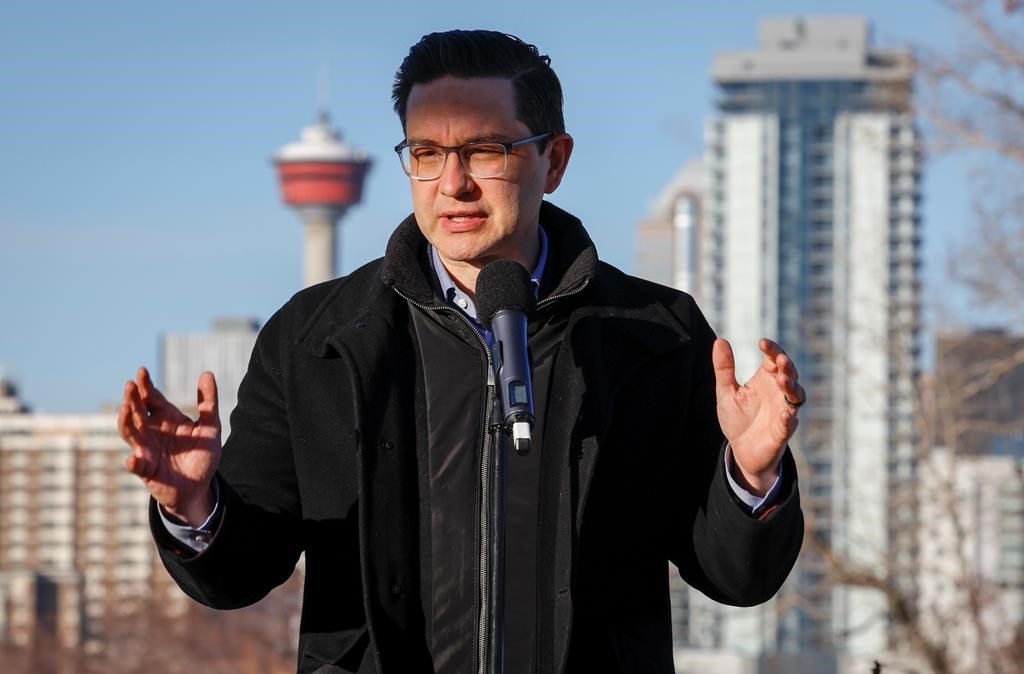The federal Conservatives are running a television spot in Atlantic Canada attacking the Trudeau government over its policy of trying to reduce greenhouse gas emissions by pricing carbon pollution.

Conservative Leader Pierre Poilievre, who appears in the 30-second spot, says the Trudeau ‘carbon tax’ is raising the cost of home heating bills.
The ad was filled in St. John’s and will run in Newfoundland and Labrador and elsewhere in Atlantic Canada, a region where more households rely on fuel to heat their homes than, say, natural gas or electricity. Other than Poilievre, the only politician in the spot is Seamus O’Regan, a St. John’s MP and a high-profile member of Prime Minister Justin Trudeau‘s cabinet.

The television ad comes on the heels of a radio advertising campaign the Conservatives recently launched in Atlantic Canada, a campaign the party says is still running.
The party, which provided the television ad to Global News, would not say how much it is spending on either ad campaign.
The Conservatives, however, are the only party that has, so far, spent any funds for advertising on legacy media platforms like radio or television since Poilievre became leader in the fall.
Other parties have been running ad campaigns on social media channels such as Facebook. Social media campaigns from the Liberals and the NDP tend to tout their own policies. The Conservatives, who are also running social media ads in addition to the legacy media ads, are the only party running ads critical of an opponent’s policy.

Get daily National news
“While we don’t comment on the specifics of our advertising strategy, the Liberal Party of Canada continues to run advertising campaigns to share Justin Trudeau and our Liberal team’s positive message with Canadians,” said Liberal party spokesperson Parker Lund.
The Conservatives can easily afford any kind of ad campaign. The party set a record in the final three months of 2022 for fundraising by any party during a non-election year, raising nearly $10 million in the quarter alone.
Elections Canada places no prohibitions on the amount of advertising a political party can engage in between election periods. Parties, candidates and third parties are free to spend whatever they wish on political ads in between election periods. Restrictions on advertising kick in in the weeks ahead of a fixed-date general election.








Comments